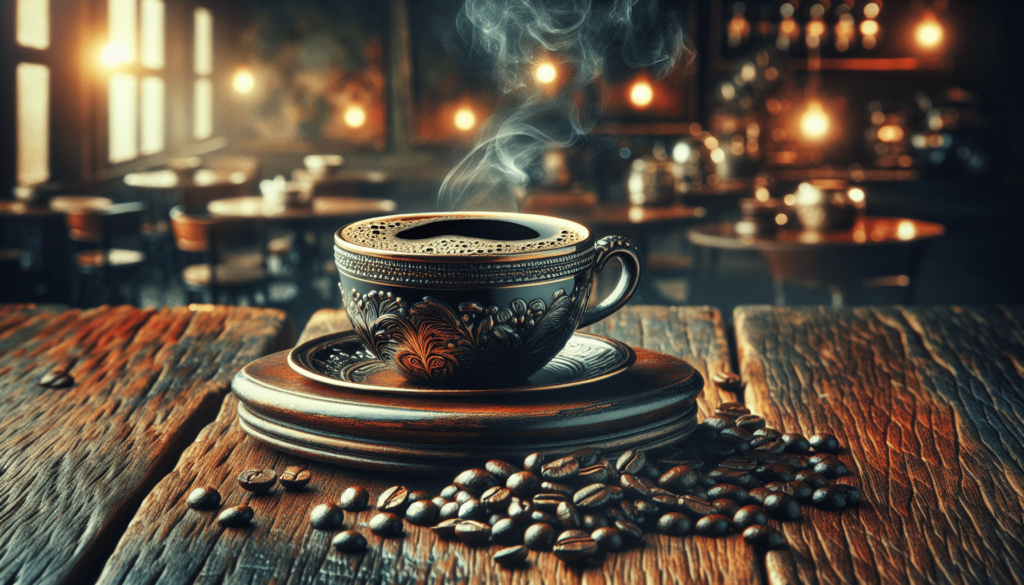What is considered the best type of coffee? This question might leave you pondering, especially with the plethora of options available. Whether you’re a seasoned coffee enthusiast or a casual drinker, diving into the world of coffee can be both exciting and a tad overwhelming. Let’s break it all down and figure out what might be considered the best type of coffee for you!

Understanding Coffee Beans
The Two Main Types: Arabica vs. Robusta
When you think about the best type of coffee, it primarily boils down to the coffee beans. Arabica and Robusta are the two main types of coffee beans you’ll encounter.
| Coffee Bean | Flavor Profile | Caffeine Content | Common Usage |
|---|---|---|---|
| Arabica | Sweet, fruity, more acidic | Lower | Specialty coffee shops, premium brands |
| Robusta | Strong, bitter, earthy | Higher | Instant coffee, espresso blends |
Arabica beans are often considered superior due to their complex flavor profile and less bitter taste. In contrast, Robusta beans are appreciated for their higher caffeine content and more robust flavor, often used in espressos for an extra kick. Your preference might lean toward one or the other based on how you like your coffee to taste and feel.
Coffee Roast Levels
Light, Medium, and Dark Roasts
Roasting significantly impacts the flavor, aroma, and overall experience of your coffee.
| Roast Level | Flavor Notes | Characteristics |
|---|---|---|
| Light | Fruity, floral, high acidity | Retains original flavors of the bean |
| Medium | Balanced, caramel, nutty | A mix of origin and roast flavors |
| Dark | Smoky, chocolate, robust | Dominated by roasted flavors, less acidic |
- Light Roasts: If you enjoy a coffee with more of the bean’s original flavors and higher acidity, a light roast could be your go-to.
- Medium Roasts: These offer a balanced flavor and are a safe bet if you’re unsure of what you prefer.
- Dark Roasts: Fans of bold, smoky, and rich flavors often gravitate toward dark roasts.
Your choice between these roast levels can significantly influence your coffee-drinking experience.
Brewing Methods
Popular Brewing Techniques
The way you brew your coffee also plays a vital role in what you might consider the best type of coffee. Here are some key methods:
| Brewing Method | Description | Flavor Profile |
|---|---|---|
| Drip Coffee | Hot water drips through ground coffee in a filter | Clean, smooth, balanced |
| Espresso | Hot water forced through finely-ground coffee at high pressure | Intense, rich, often bitter |
| French Press | Coffee grounds steep in hot water, then plunged | Full-bodied, with rich flavors |
| Pour Over | Hot water poured over coffee in a filter manually | Clean, bright, full control over flavor |
- Drip Coffee: Great for a quick, smooth cup.
- Espresso: If you love a strong, concentrated coffee, espresso is your friend.
- French Press: Offers a richer, fuller flavor.
- Pour Over: Provides control over every variable, leading to a potentially perfect cup of coffee.
The best brewing method for you will depend on your taste preferences and lifestyle.
Specialty Coffees
Single-Origin vs. Blends
Specialty coffees can elevate your coffee experience to a new level.
| Specialty Coffee | Description |
|---|---|
| Single-Origin | Coffee sourced from a single location, showcasing unique flavors |
| Blends | A mix of beans from different locations, offering a balanced flavor |
- Single-Origin: Perfect if you want to experience specific flavors and characteristics from a particular region.
- Blends: Ideal for a well-rounded cup, leveraging the strengths of multiple beans.
Cold Brew and Iced Coffee
When the weather warms up, your coffee preferences might shift.
- Cold Brew: Brewed over a long period using cold water, resulting in a smooth, less acidic coffee.
- Iced Coffee: Regular coffee brewed hot and then cooled down, maintaining the typical coffee flavors but in a refreshing way.
Both cold brew and iced coffee offer refreshing options that maintain the integrity of coffee flavors in a chilled format.

Coffee Additions
Milk, Creamer, and Alternatives
Your choice of additions can also define your best type of coffee.
| Addition | Description |
|---|---|
| Milk/Creamer | Adds creaminess, commonly used in lattes and cappuccinos |
| Plant-Based Milk | Almond, soy, oat, coconut milk – for those avoiding dairy |
| Sweeteners | Sugar, honey, syrups – for adding sweetness |
- Milk and Creamer: Traditional choices for adding a creamy texture.
- Plant-Based Milk: A great option for those who are lactose intolerant or vegan.
- Sweeteners: Customize your coffee’s sweetness to your liking.
Whether you prefer black coffee or like to mix in milk or sweeteners, your additions can greatly alter your coffee’s final taste and texture.
The Best Coffee by Origin
Renowned Coffee-Producing Countries
Different regions produce coffee with distinct flavors due to their unique climates and growing conditions.
| Country | Flavor Notes |
|---|---|
| Ethiopia | Fruity, floral, complex |
| Colombia | Balanced, nutty, caramel |
| Brazil | Chocolatey, nutty, full-bodied |
| Kenya | Bright, fruity, wine-like |
| Sumatra | Earthy, spicy, full-bodied |
Exploring coffees from different origins can be an enriching experience. Trying out various coffees from these countries can help you decide which flavor profiles you enjoy the most.
The Quest for Quality
Fair Trade and Organic Coffee
When quality matters, considering certifications can guide you to better coffee choices.
| Certification | Meaning |
|---|---|
| Fair Trade | Ensures fair prices and ethical treatment of farmers |
| Organic | Grown without synthetic pesticides or fertilizers |
- Fair Trade Coffee: Supports ethical labor practices and better conditions for farmers.
- Organic Coffee: Focuses on environmentally-friendly growing practices.
Selecting certified coffees can ensure you’re enjoying a high-quality and ethically-produced product.
Freshness Matters
- Whole Beans vs. Ground Coffee: Whole beans maintain freshness longer, while ground coffee offers convenience.
- Storage Tips: Store coffee in an airtight container in a cool, dark place to maintain its freshness.
Freshness can significantly impact the flavor and aroma of your coffee, making it crucial in your quest for the best coffee.
What Is Considered the Best?
Personal Preferences
Ultimately, the answer to what is considered the best type of coffee is highly personal. Here are a few questions to help frame your preferences:
- Do you prefer a light, medium, or dark roast?
- What brewing method do you enjoy the most?
- Do you like your coffee with milk and sweeteners, or do you drink it black?
- Do you favor certain flavor profiles from specific regions?
Your answers will shape what you consider the best coffee.
Experimentation is Key
Don’t be afraid to experiment. The vast world of coffee offers endless possibilities, and sometimes the best coffee for you might come from trying something new and unexpected.
Conclusion
So, what is considered the best type of coffee? It all depends on you and your unique preferences. From the type of beans and their origin to the roast level, brewing method, and additions, every aspect plays a role in crafting your perfect cup. By understanding these factors, you can make informed choices that suit your taste and lifestyle. The best coffee is out there waiting for you to discover, happy sipping!
